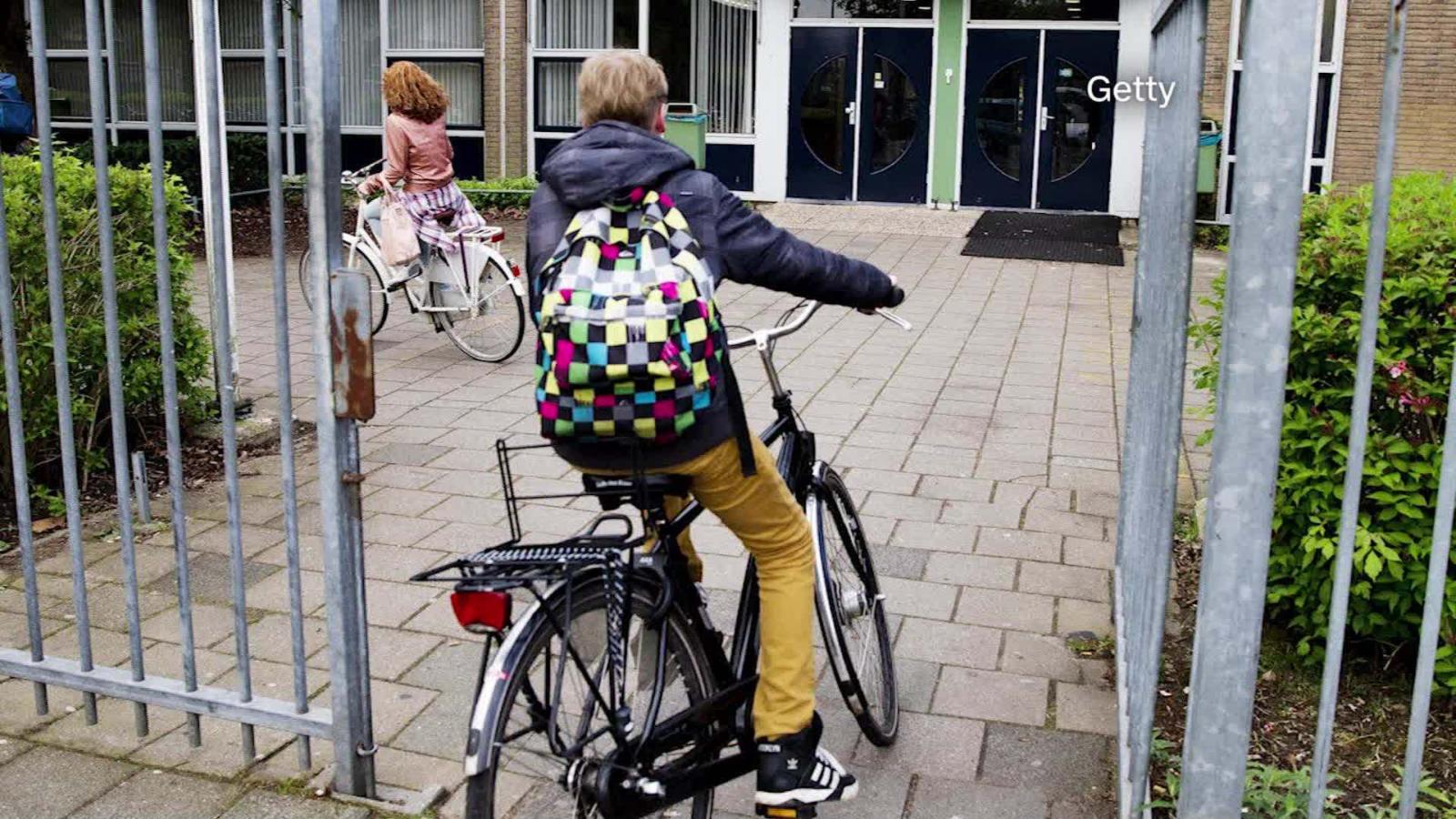"Accomplices" a short film about school bullying 25:42
(CNN Spanish) --
School harassment, also known as
bullying
, is a problem that afflicts students around the world.
A reflection of this is the panorama reported by students from the 38 member countries of the Organization for Economic Cooperation and Development (OECD).
According to the results of the PISA 2018 test (the latest edition available), on average, two in 10 students (23%) in OECD countries said they had been victims of bullying at least a few times each month.
Boys and low-performing students in reading were more likely to report being bullied at least a few times a month than girls and high-performing students. take the PISA test.
An 11-year-old girl with Down syndrome was bullied, so her country's president walked her to school
What is
bullying
?
Simply put, bullying is aggressive behavior that purposely and repeatedly harms the most defenseless.
advertising
In the PISA 2018 test, the OECD cites that
bullying
"is a specific type of aggressive behavior that involves unwanted negative actions in which someone intentionally and repeatedly harms and inconveniences another person who has difficulty defending themselves."
In addition, adds the organization, bullying is characterized by a systematic abuse of power and an unequal power relationship between the victim and the perpetrator.
Basic tips to deal with bullying 2:46
What consequences does bullying bring?
The same PISA 2018 test offers data on the consequences that were observed in victims of
bullying.
"Data from PISA 2018 show that in most participating countries and economies, students who were frequently bullied were more likely to feel sad, scared and dissatisfied with their lives than students rated as not frequently bullied. They were also less likely that students who experience frequent bullying feel happy and have the self-confidence to overcome difficult times," he says.
On average, 64% of students across OECD countries who reported being
bullied
frequently said they sometimes or always feel sad.
In contrast, the percentage drops to 49% for students who said they do not experience frequent bullying at school.
Also, since past years, various studies and surveys have shown that bullying can cause damage in the short and long term, such as an increase in the rates of tobacco and alcohol consumption, in the use of substances, more probabilities of depression and of symptoms of Attention Deficit Hyperactivity Disorder (ADHD).
In addition, among the consequences, says one of the studies, there are also self-harm and even suicide.
Adolescents bullied by their peers for any reason have more long-term mental health problems than children abused by adults, according to the study, which was published in 2015. The research showed that children who are
bullied
are more likely to develop anxiety and depression and to consider the possibility of self-harm and suicide later.
See here the lines of attention and prevention of suicide in Latin America and Spain
What can we do?
Regarding prevention, the United States government has some recommendations for adults to help with this problem:
Adults need to help children understand the phenomenon of
bullying
and how they can deal with it safely.
Here you can read more about it.
Do not forget to always be in communication with children and adolescents.
This includes talking to them on a regular basis, asking about their friends, about their day at school, and anything else related to their school life.
To help kids and teens build their confidence, always encourage them to do the things they love.
Finally, set the example of how to treat others with respect and kindness.
How to get help for someone who might commit suicide
Call 1-800-273-8255 in the United States to contact the National Suicide Prevention Lifeline. Provides free and confidential assistance 24 hours a day, seven days a week, for people in suicidal or distressed crisis. You can learn more about their services here, including their guide on what to do if you spot suicidal signs on social media. You can also call 1-800-273-8255 to speak with someone about how you can help someone in crisis. Call 1-866-488-7386 for TrevorLifeline, a suicide prevention counseling service for the LGBTQ community.
For assistance outside the US, the International Association for Suicide Prevention provides a global directory of resources and international hotlines. You can also turn to Befrienders Worldwide









